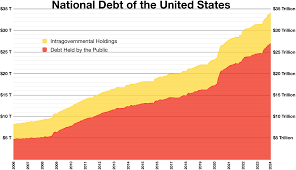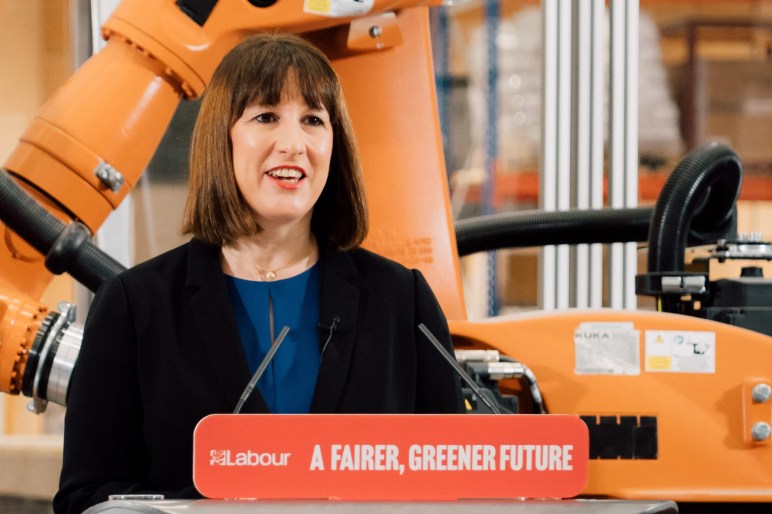The ritual of the annual Mais lecture took place on 19th March. The Mais lectures have been taking place since 1978. The year is not accidental. Thatcher was about to come to power. She proposed to abandon the postwar economic consensus of a managed economy in which the state assumed responsibility for economic areas considered crucial to economic success: health, … Continue reading Reeves in a Straightjacket—Editorial
National Debt

Sustainability of National Debt
The House of Lords has an Economic Affairs Committee (EAC) which has regular inquiries into economic matters that they think will be important for members of the House of Lords to understand. The structure of these inquiries is that the committee will hold a series of meetings to which it calls expert witnesses and asks them … Continue reading Sustainability of National Debt

Taxing Issues
Martin Seale Jeremy Hunt’s November Autumn Statement was a clever piece of work. It had two objectives. Firstly, to win the next general election. Secondly, if the Tory Party did not win the next general election, to guarantee that any Labour administration would fail. Hunt’s trump card in achieving this dual objective is the fiscal rule book. Hunt, … Continue reading Taxing Issues

MMT Debate
Below we reprint selections from a lively debate on Modern Monetary Theory (MMT) that has been taking place under the auspices of the Workers’ Party of Britain. Those who are interested can access the full debate on the Workers Party website. MODERN MONETARY THEORY (MMT) FOR WPB Chris Williamson No political party in Britain has … Continue reading MMT Debate

Labour’s Economic Model – Trust the Private Sector
Martin Seale The speech by the Shadow Chancellor, Rachel Reeves, to the 2023 Labour conference shows that a Starmer government could rapidly become dysfunctional. In her speech to the 2023 Labour Party conference, Rachel Reeves stated “Today, I make this commitment to you, and to the country: Out of the wreckage of Tory misrule, Labour … Continue reading Labour’s Economic Model – Trust the Private Sector

Tory and Labour U-turns on Aid to Developing Countries
(The image above comes from the International Development Committee) Michael Murray Introduction The UN requires that countriesallocate 0.7% of their Gross National Income (GNI) on Official Development Assistance (ODA) for the purposes of the economic development and welfareof developing countries. TheInternational Development (Official Development Assistance Target) Act 2015 lays down how the UK will meet this requirement … Continue reading Tory and Labour U-turns on Aid to Developing Countries
The Independence of the Bank of England—Editorial
Central Bank Independence Readers will be familiar with the term ‘independence of the central bank’. Of late, it has been much referred to in the media. The tone is always that this independence is a good thing. And Labour proudly remind us that the Bank of England (BoE) was made independent by Gordon Brown in 1998 when he … Continue reading The Independence of the Bank of England—Editorial

How to pay for it. The case for the elimination of the cap on child benefit.
An imaginary interview between the BBC and a progressive Labour Party by Michal Lerner BBC: Labour says that it will eliminate the cap on child benefit. That will cost some £1.3 billion. How will Labour pay for it? LP: A Labour government will pay for it the way British governments pay for everything that has been approved by … Continue reading How to pay for it. The case for the elimination of the cap on child benefit.

An Active State—Rachel Reeves in America
Martin Seale Rachel Reeves made an interesting presentation to the Peterson Institute in Washington DC on 24th May. The speech was accompanied by a 33 page document called “A New Business Model for Britain” in which it was stated: “The causes of Britain’s economic weaknesses run deep, however. For too long, Britain has been held back by two misguided … Continue reading An Active State—Rachel Reeves in America
Fiscal Rules – A Scam To Justify Austerity — Editorial
Early in his Autumn Statement to Parliament on 17th November, the Chancellor, Jeremy Hunt, announced two new fiscal rules: “…I also confirm two new fiscal rules. The first is that underlying debt must fall as a percentage of GDP by the fifth year of a rolling five-year period. The second is that public sector borrowing over … Continue reading Fiscal Rules – A Scam To Justify Austerity — Editorial
The Non-Existent UK Fiscal Black Hole— Editorial 2
The story we are being told about UK government finances by virtually every main stream media (MSM) commentator goes something like this. The government wants to spend more than it is raising in taxes. This means that it will have to borrow from the private sector. The private sector may choose not to lend to the government. In … Continue reading The Non-Existent UK Fiscal Black Hole— Editorial 2
The Budget Debate
Discussion of the Budget in Parliament https://hansard.parliament.uk/Commons/2022-11-17/debates/97DB3122-0068-46CD-B026-F757C8DF39AF/details#contribution-7F63EF1C-81E2-485B-8F3E-D9C47C284CB5 The main issue arising from the budget is the one outlined in the editorial: the anti-working class new fiscal rules that limit public spending and favour the private sector. Only one MP refers to this (see below) and he’s not Labour. The other worrying factor is Hunt’s professed admiration for … Continue reading The Budget Debate

The Kwarteng Budget
Kwasi Kwarteng’s Budget Adventure. Dave Gardner Did the then Chancellor of the Exchequer Kwarteng mention the need for extra borrowing when he presented his tax cutting plans to the House of Commons on 23 September? The answer is NO he didn't - although opposition speakers (including Rachel Reeves) did assert that substantial extra borrowing would … Continue reading The Kwarteng Budget
Animal Spirits, Taxing and Borrowing — Editorial
Kwasi Kwarteng is clearly a believer in animal spirits, or more specifically, the animal spirits of the UK private sector. The term ‘animal spirits’ was used by the economist J. M. Keynes to describe the spontaneous forces of vitality that drive human action. Apparently these animal spirits have been held back by too much taxing and … Continue reading Animal Spirits, Taxing and Borrowing — Editorial
Let’s Avoid a 1970s Rerun
The TUC have called for a large demonstration in London on June 18th in the face of the cost of living crisis. “Working people have had enough. Everything’s going up but our wages. Join the trade union movement in London to tell this government: we DEMAND better!” reads the TUC blurb. They are right and a massive … Continue reading Let’s Avoid a 1970s Rerun
On Interest Rates and Mini-Budgets
Interest Rates and Mini-Budgets Martina Seale On May 4th the Bank of England (BoE) decided to raise the Bank interest rate by 0.25% to 1%. The stated purpose of the increase is to help fight inflation. The logic that the BoE is following is really quite simple. Inflation is caused by demand for products being greater that the … Continue reading On Interest Rates and Mini-Budgets
Sanctions and Rubles
Martin Seale The members of NATO have imposed sanctions on Russia following its Special Military Operation in Ukraine which began on 24th February. NATO would clearly like these sanctions to severely damage Russia. It is unlikely that they will for two main reasons. Firstly, Russia is a currency creating state and does not therefore have financial constraints. Secondly, Russia is … Continue reading Sanctions and Rubles
Rishi Sunak’s Financial Statement
Editorial 1 Early on in his dismal Financial Statement Rishi Sunak said: “At a time when the OBR has said that our fiscal headroom could be “wiped out by relatively small changes to the economic outlook,” it is right that the central fiscal judgement I am making today is to meet our fiscal rules with a … Continue reading Rishi Sunak’s Financial Statement